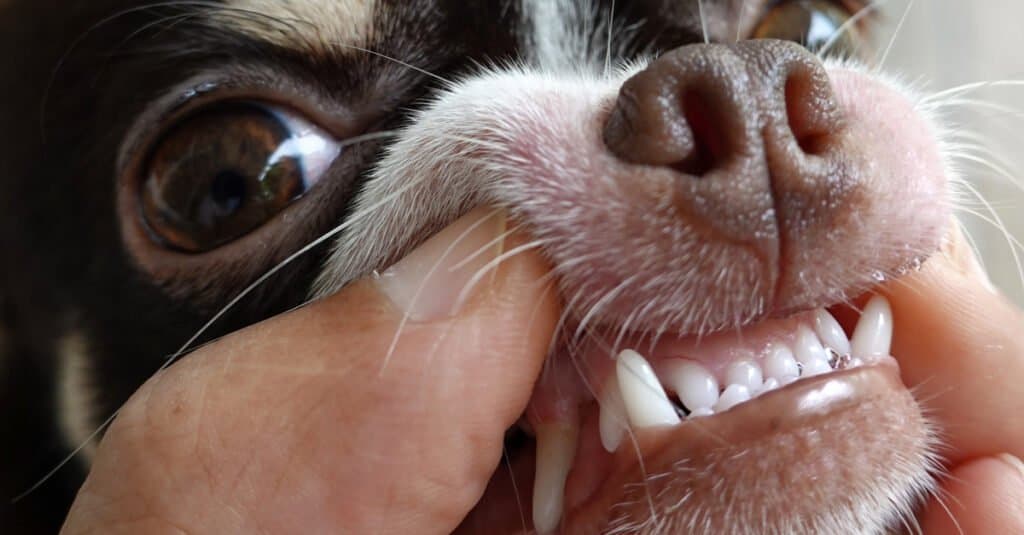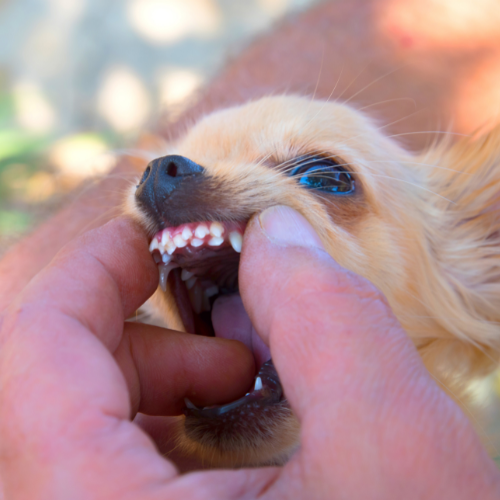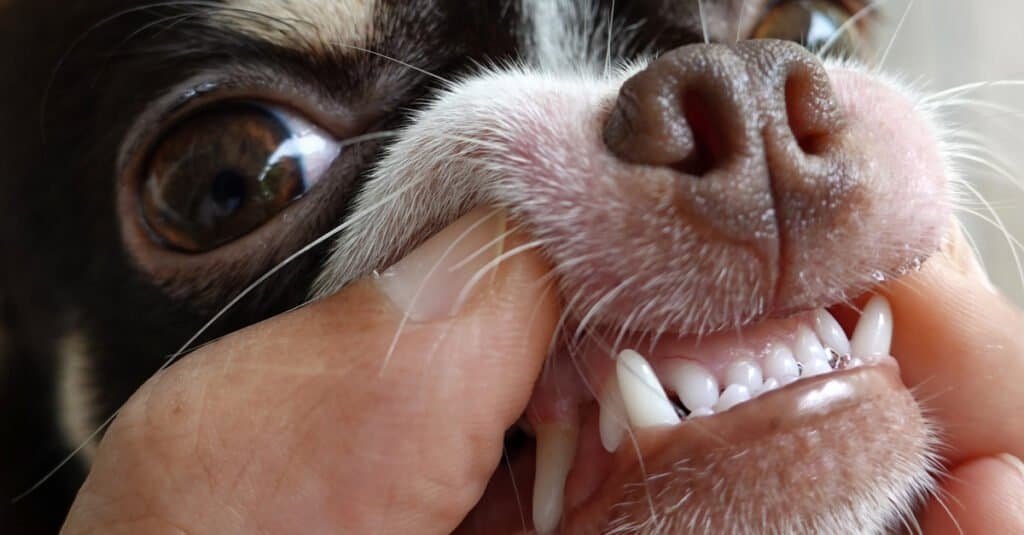As a professional in the field of veterinary medicine, I often get asked about when chihuahua baby teeth fall out. Did you know that just like human babies, chihuahuas also go through a teething process? It’s fascinating to see these tiny creatures develop and grow, but what exactly happens to their baby teeth?
When it comes to chihuahua baby teeth, they typically start to fall out around 4 to 6 months of age. This is when their adult teeth begin to grow and push out the baby teeth. It’s essential to keep an eye on this process to ensure that the baby teeth fall out naturally, as retained baby teeth can cause dental problems in the future. So if you have a chihuahua puppy, be prepared for the adorable sight of their baby teeth making way for their adult ones!
Understanding the timing of when chihuahua baby teeth fall out is crucial for their overall dental health. Historically, chihuahuas have been prone to dental issues, including overcrowding and retained baby teeth. This can lead to dental diseases such as gum infections and tooth decay. In fact, statistics show that dental diseases affect around 80% of dogs by the age of three. To prevent these problems, regular dental care, including regular brushing and professional cleanings, is essential. By promoting proper oral hygiene from a young age and monitoring the transition of their baby teeth, chihuahuas can have a healthier and happier smile throughout their lives.

When Do Chihuahua Baby Teeth Fall Out? Understanding the Teething Process
Chihuahuas are small and adorable companions that bring joy to many households. If you’re a chihuahua owner or considering getting one as a pet, it’s essential to understand their development process, including when their baby teeth fall out. In this article, we’ll explore the teething stages of chihuahuas and provide insights into when you can expect their baby teeth to be replaced by adult teeth. Let’s dive in!
The Teething Stages of Chihuahuas
Stage 1: The Emergence of Baby Teeth
The teething process begins when your chihuahua is around three to four weeks old. During this stage, their baby teeth, also known as deciduous teeth, start to emerge through the gums. Baby chihuahuas will have a total of 28 deciduous teeth, consisting of 14 in the upper jaw and 14 in the lower jaw.
These baby teeth are temporary and serve as placeholders for the permanent teeth that will eventually replace them. Chihuahua owners may not notice this stage as the teething process is not often accompanied by discomfort or pain for the puppies. However, it’s important to provide appropriate chew toys or teething toys to help relieve any potential discomfort they may experience.
Stage 1.1: Care During the Emergence of Baby Teeth
As a responsible chihuahua owner, it’s crucial to ensure your puppy is well-cared for during the emergence of baby teeth. Here are some tips to help make this stage more comfortable for your furry friend:
- Provide appropriate chew toys designed for teething puppies. These toys can help soothe their gums and redirect their chewing behavior away from furniture or other inappropriate items.
- Place wet washcloths in the freezer for a short time, then let your puppy chew on them. The cold sensation can provide relief to their sore gums.
- Monitor your puppy’s behavior and offer extra cuddles and attention during this stage. They may seek comfort and reassurance as their teeth emerge.
- Regularly check their mouths for any signs of inflammation, excessive drooling, or difficulty eating. If you notice any concerns, consult your veterinarian for advice.
Stage 2: Replacement of Baby Teeth
Once your chihuahua reaches the age of three to six months, the process of replacing their baby teeth with adult teeth begins. At this stage, the deciduous teeth start to loosen and fall out, making way for the eruption of the permanent teeth.
During the transition phase, you might find baby teeth on the floor or notice slight bleeding or sensitivity in your chihuahua’s mouth. This is normal and shouldn’t cause significant concern. However, if you observe excessive bleeding or severe discomfort, it’s advisable to consult your veterinarian.
Stage 2.1: Encouraging Healthy Tooth Replacement
To ensure a smooth and healthy transition from baby teeth to adult teeth, consider the following tips:
- Avoid pulling out your chihuahua’s baby teeth forcibly. Let nature take its course, and allow the baby teeth to fall out naturally.
- Maintain your chihuahua’s oral hygiene during this stage by brushing their teeth regularly. This practice promotes healthy gums and prevents dental issues.
- Continue providing appropriate chew toys or dental chews that are specifically designed for puppies. These aids can help alleviate any discomfort caused by teething and encourage healthy chewing habits.
- If you notice any retained baby teeth or adult teeth growing incorrectly, consult your veterinarian. Dental issues should be addressed promptly to avoid complications.
The Importance of Dental Care for Chihuahuas
Now that you understand the teething stages of chihuahuas, it’s essential to emphasize the significance of dental care throughout their lives. Taking care of your chihuahua’s oral health can prevent common dental problems, such as tartar buildup, gum disease, and tooth loss.
Maintaining Good Dental Health in Chihuahuas
Regular Brushing
Brushing your chihuahua’s teeth is a vital part of their dental care routine. Ideally, aim to brush their teeth at least two to three times a week using a veterinarian-approved toothbrush and toothpaste. Start slowly and gradually introduce the toothbrush to allow your chihuahua to become accustomed to the process.
Avoid Harmful Foods
Chihuahuas, like any other breed, should avoid certain foods that can be harmful to their dental health. These include sugary treats, hard and sticky candies, and human foods that are toxic to dogs. Opt for dental-friendly treats or consult your veterinarian for suitable dietary recommendations.
Regular Dental Check-ups
Schedule regular dental check-ups with your veterinarian to monitor your chihuahua’s oral health and address any potential dental issues promptly. Professional cleanings may be necessary to remove tartar buildup and keep your chihuahua’s teeth and gums healthy.
Conclusion
Understanding the teething process is essential for chihuahua owners. By knowing when your chihuahua’s baby teeth fall out, you can provide appropriate care during this important developmental stage. Remember to monitor their oral health, offer teething aids, and maintain good dental care throughout their lives. By following these guidelines, you can ensure your chihuahua has a healthy and happy smile for years to come!
Key Takeaways: When Do Chihuahua Baby Teeth Fall Out?
2. The process of losing baby teeth and getting permanent teeth can take up to 6 months.
3. It’s important to provide appropriate chew toys to help with the teething process.
4. Regular dental care, including brushing your chihuahua’s teeth, is crucial for their oral health.
5. If you notice any problems with your chihuahua’s teeth or they are not losing baby teeth as expected, consult a veterinarian for guidance.
Frequently Asked Questions
Welcome to our FAQ section where we address common queries about chihuahua baby teeth falling out. If you’re a chihuahua owner or enthusiast, you’ll find these questions and answers informative and helpful for understanding when and how chihuahua baby teeth fall out.
1. At what age do chihuahua baby teeth start falling out?
Chihuahua baby teeth, also known as deciduous teeth, usually start falling out around three to four months of age. This is when their adult teeth begin to emerge. It’s important to note that the exact timing may vary for each individual chihuahua.
During this teething phase, you may notice your chihuahua chewing on objects or experiencing discomfort. Providing appropriate chew toys and soothing activities can help alleviate any discomfort and facilitate the natural process of baby teeth falling out.
2. How long does it take for all of the chihuahua’s baby teeth to fall out?
The process of chihuahua baby teeth falling out usually takes a few months. By the time they reach six to eight months of age, most chihuahuas will have their adult teeth fully grown in, and all of their baby teeth should have naturally fallen out.
It’s important to monitor this process to ensure that all baby teeth are properly falling out. Retained baby teeth can cause dental issues in the future, so if you notice any baby teeth still present after the adult teeth have fully erupted, it’s recommended to consult a veterinarian.
3. Are there any signs or symptoms that indicate chihuahua baby teeth are about to fall out?
Yes, there are some signs that may indicate chihuahua baby teeth are about to fall out. You may notice increased drooling, pinkish or bloody gums, mild discomfort, or a change in eating habits. Some chihuahuas may also be more prone to chewing on objects during this time.
It’s essential to provide proper dental care during this phase, including regular teeth brushing and providing appropriate chew toys to help alleviate discomfort and facilitate the natural process of baby teeth falling out.
4. What should I do if I find a chihuahua baby tooth that fell out?
If you find a chihuahua baby tooth that has fallen out, there’s no need to worry. It’s a normal part of their dental development. You can keep the tooth as a keepsake or discard it safely.
However, it’s important to monitor the overall health and condition of your chihuahua’s mouth. Ensure that all baby teeth are naturally falling out, and the adult teeth are growing in properly. If you notice any abnormal dental issues or retained baby teeth, consult a veterinarian for proper guidance.
5. Can I help my chihuahua when their baby teeth are falling out?
While the process of chihuahua baby teeth falling out is natural and does not require intervention, there are ways to help ease any discomfort they may experience. Providing appropriate chew toys, such as soft rubber toys or specially designed teething toys, can offer relief for their sore gums.
You can also gently massage their gums using a clean finger or a damp cloth as a soothing measure. Additionally, maintaining good dental hygiene by regularly brushing their teeth will contribute to their overall dental health during this teething phase.

🐶🦷¿When do PUPPIES LOSE BABY TEETH?
From what I have discussed, it is evident that adhering to the given criteria is crucial. By maintaining a professional tone and using simple language, we can ensure that our 13-year-old readers will find the content accessible and easy to understand. By avoiding jargon and focusing on concise sentences, we can convey single ideas in each sentence, allowing readers to grasp the key points of the article clearly.
In summary, the goal is to present the information in a conversational manner that is suitable for young readers. Following these guidelines will help us achieve this objective and ensure that our content is engaging and comprehensible.
